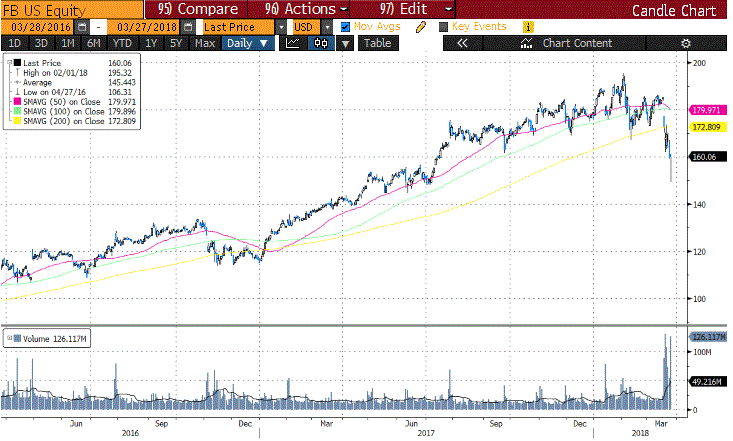Sudden Death Overtime
“I’d rather invest in Russia than in Germany, I’d rather invest in Japan or China than in America. America is at an all-time high, and no other nation in the history of the world has ever been this in debt.” – Jim Rogers
As a full time investor I spend the bulk of my day trying to build a comprehensive view of “the market”. My routine starts each morning with recapping overnight newsflow from the US and after that, it’s an all- day, continuous process of scanning of news flow, Twitter sentiment and chatting with my network as I try to synthesize data points and how they might affect my outstanding risk positions.
When I have downtime I read through the dozen or so various financial publications online that I subscribe to which help provide me with a number of divergent views from investors that are usually much smarter than me.
And then of course there is mainstream media which tends to blow things way out of proportion, depending on which side of the political divide they happen to be supporting. But the reality is that this noise directly affects investor sentiment which in turn directly affects the market, so it is a necessary evil to monitor.
As of recent the one thing that I’ve noticed is the accelerated pace of “sentiment affecting news” that comes out almost regularly now. Trump started it all with his ad hoc shoot-from-the-hip Twitter antics but now we are experiencing a heightened sensitivity by market participants to any type of news that could potentially trigger a violent move up or down.
This past week was nothing short of challenging for global investors as we experienced the second major selloff in just two months which was of course followed by a strong rebound shortly thereafter. This time around it was a combination of Facebook, the Fed, China tariffs and a Tencent selldown that shook global markets.
Now the Facebook privacy fiasco is a huge deal…one that could potentially unravel the entire tech sector (and market). Big Data is a huge part of earnings for the best performing FANG stocks and mining that data is worth a lot of money to a lot of people. As the dust settles and regulatory scrutiny in the space increases it’s only a matter of time before Wall Street analysts start cutting their earnings estimates for these companies, which could be just what it takes to finally trip up this market substantially.

Poof! Goes US$100mm bucks; Source: Bloomberg
The smoking gun for this past correction, however, was most certainly Trump’s trade war tirade and the potential ramifications in a worst case scenario.
Yesterday morning I logged into my computer and my inbox was flooded with brokers’ commentary on what the potential impacts of a trade war would be, which sectors would be affected the most and how to insulate (or even profit) from it. Sell side analysts clearly worked overtime on the weekend white-boarding out the various scenarios of the end of the world and packaging together reports with titles such as “How Will China Retaliate” and “Trade War Strategy Report.”
But by mid-day yesterday, just as the last analyst report was sent out, Asia managed to shrug it all off and US futures were actually up. By mid session Monday morning in the US, the markets were flying once again and greedy investors piled back into stocks as seemingly cooler heads prevailed from the US and China, dialing back the threat of escalation.
A clear pattern is starting to emerge now which might help us navigate through future dislocations. It begins with tough guy language from Trump and over the top threats. These initial comments spook the market resulting in a knee jerk selloff and overall risk aversion. All of a sudden all further comments and news-flow become potential triggers. The market panics for a session or two but then, slowly but surely, cooler heads prevail and negotiations come through to quell the markets. And then we see a strong relief rally a few sessions later, like we did last night.
The trade war issue is a polarizing one and for the most part the people I’ve spoken to have discounted the severity and potential ramifications to the markets should it get out of control. That is, afterall, why markets keep rebounding so quickly as it is clear that fear gives way to greed even at this ridiculous late stage of the cycle.

“You think the Chinese are just sitting around?”
Despite the negative headlines flying back and forth between east and west, China continues to make great incremental forward progress. In just the last two weeks we’ve witnessed Presiden Xi Jinping unanimously re-elected as China’s president (which came just days after the lifting of presidential term limits allowed him to stay in office indefinitely)and the election of Yi Gang as governor of the PBOC (which also comes days after China merged its banking and insurance regulator making the PBOC the most powerful government body).
We’ve also seen a slew of new MSCI A-share indices being launched (a move that further opens up the mainland stock market to global investors) and the introduction of a brand new share class called CDR’s (Chinese Depository Receipts) which will drive a wave of the best Chinese tech companies such as Alibaba and JD and the private unicorn companies to list in the mainland allowing for their local investors to participate in the upside. This move will likely only reduce liquidity in the foreign listed lines while increasing the valuations across the board.
Finally, just yesterday, China officially launched their yuan-denominated crude oil futures contract a highly anticipated event from the largest oil consumer and importer in the world.
So no, the Chinese are definitely not just sitting around spectating on the sidelines.
It’s a short week as we head into Easter weekend and it’s hard to believe Q1 is already over. I know I sound like a broken record saying this but really, from here on out, I only see increased volatility and headwinds, particularly for equity investors.
The era of cheap credit is officially over and I can see a day of reckoning come soon where all the unproductive firms that have ridden on the coattails of “free” credit financed buybacks and multiples extrapolation will finally have to face the music.
There is no question that valuations are lofty across the board and the longer that remains the case, the lower returns we can expect. So why are people still piling into the market? Valuations don’t always dictate short term market returns but when “the big one” comes (and it will come) you’ll be glad you aren’t still picking up pennies in front of the proverbial steamroller.

